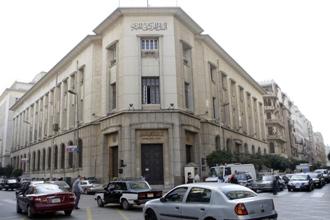DUBAI: Private equity in the Middle East may return to its roots with small and medium-sized business investments following a regional downturn, as the sector remains cautious about its 2011 growth prospects.
Gathering in Abu Dhabi for the annual SuperReturn meeting this week, the Middle East’s top private equity (PE) leaders will explore ways to recover the sector’s lost luster with smaller investments.
Big deals such as the almost $1.4 billion 2007 sale of Egyptian Fertilizers by Egypt’s Citadel Capital to Dubai-based Abraaj Capital look unlikely to be equaled for the time being.
Those two regional heavyweights will be at the conference, joined by David Rubenstein, managing director of global PE house The Carlyle Group, to discuss the outlook of an industry whose Middle East investments plunged 80 percent to $561 million in 2009, Gulf Venture Capital Association data showed.
Experts expect deal activity to pick up in 2011 on the back of stronger regional economic growth, but PE firms will spend more time on small-to-medium sized enterprises (SME’s) and even angel funding — providing funding for start-up businesses — to ensure the sector’s long-term appeal.
"The SME space is certainly that segment that needs to be reinvested in. In a certain way, we’re going back to our roots," said Frederic Sicre, executive director at Abraaj Capital, the region’s largest PE player. That would also lead them to look at angel financing, he said.
Outlook
A majority of industry executives surveyed by Deloitte expect entry multiples and returns on exits to remain similar in the next 12 months, with trade sales expected to be the most common exit option after initial public offerings.
Future deal activity is likely to take place in more defensive sectors, such as healthcare and education, while oil and gas, the consumer sector and infrastructure will also drive growth, according to Deloitte’s Middle East and North Africa PE survey released on Sunday.
Most investments are likely to involve Saudi Arabia, Egypt and the United Arab Emirates, but "frontier" markets such as Iraq also hold great potential, the Deloitte study showed.
Regional industry executives surveyed cited regulation, transparency, the oversupply of capital and "the lack of acceptance of private equity" as the sector’s main challenges.
"The fundraising environment in MENA remains tough, but sentiment appears to be moving in a positive direction," said Chris Ward, chief executive of Deloitte’s corporate finance operations in the Middle East.
"There will be the odd big deal, but it will be the exception rather than the norm," he said.
Ward added that global LP, or limited partners, will have an increasing appetite for the MENA region, fuelled by both market recovery and interest in new and specialist sectors.
Foreign interest
Though they attended in 2009, New York-based Kohlberg Kravis Roberts & Co and Stephen Schwarzman of Blackstone Group won’t be at this year’s SuperReturn conference.
"With one or two exceptions, the big players of private equity seem to have refocused their Middle East efforts on LP (limited partners) management and investor relations," said Yahya Jalil, head of PE at The National Investor (TNI).
"We haven’t seen these firms bidding on any of the big situations that have come to market in the past 12 months," Jalil said.
"One reason is the corporate governance standards of the Middle East don’t fulfill the legal and compliance checklist requirements of the big firms," he added.
For other executives, the Middle East door is already open, so they don’t need to press the flesh at conferences.
"You go to conferences often when it’s the first time; for example you go to Uzbekistan because in a period of two days you get to hopefully meet the who’s who, you get to exchange cards," said Sicre at Abraaj.
"This region (the Middle East) is now open; everyone knows how to come to Adia (Abu Dhabi Investment Authority) or Abraaj. We, too, at Abraaj are tired of conferences."


